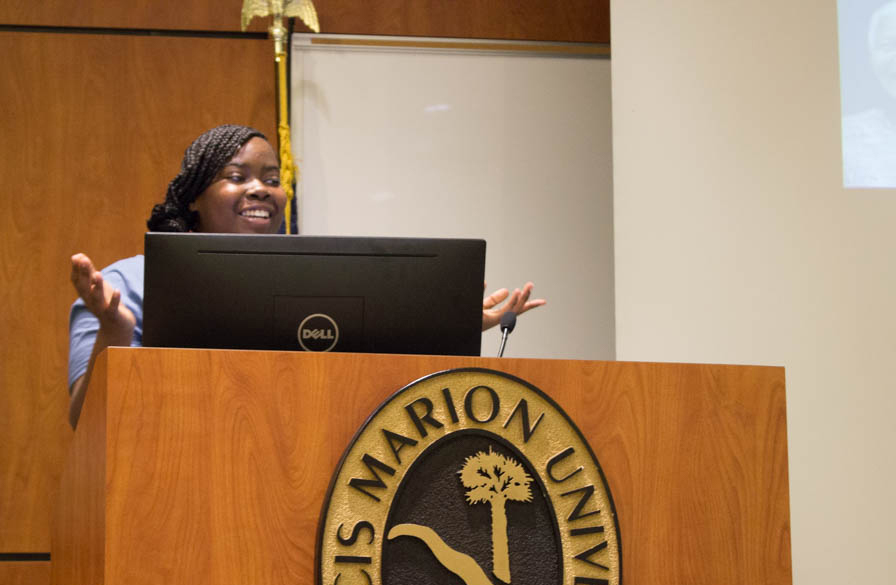The black experience
Photo by: Elodi Breg
Precious McLaughlin gives a crash course on different areas of black history.
The FMU chapter of the NAACP educated students about black history during “Black to Our Roots: Crash Course through the Black Experience” on Feb. 12 at 6 p.m. in the Thomason Auditorium in the Lee Nursing Building.
The event focused on distinct stages of the black experience in America, such as the eras of bondage, the turn of the century, lynching, the civil rights movement and the black power movement. The presentation highlighted multiple figures, such as Nat Turner, Denmark Vesey and Sojourner Truth, during its section on the bondage of African-Americans. The NAACP showed short videos about each of these individuals’ lives.
The section on the turn of the century focused on racial riots that happened during that time. Examples included the Springfield riot of 1908, the East Saint Louis 1917 race riot, the Houston riot of 1917, the Red Summer of 1919 and Black Wall Street. From the race riots of the early 1900s, the presentation moved on to the period of lynching.
At the time when lynching was occurring more often, Booker T. Washington and W.E.B. Du Bois were key figures in the African-American community. The presentation highlighted how both men had different ideologies. However, both men wanted what was best for African-Americans.
Next, students learned about the civil rights movement and people like Asa Philips Randolph, Fannie Lou Hamer and Thurgood Marshall. The presentation included short clips about these individuals’ lives as well. The last thing the presentation discussed was the black power movement. Attendees were taught about the Black Panthers, and special focus was placed on Angela Davis and Huey P. Newton.
Precious McLaughlin, president of the FMU chapter of the NAACP, said it was important for students to learn about the historical figures who inspired the movement.
“I hope students learned a lot about figures they don’t usually see in their history books,” McLaughlin said. “I went through and chose people from each era, from slavery to the civil rights movement, to the black power movement who I thought students wouldn’t ordinarily know.”
There was also a competitive element during the event. Students were divided into two groups and they played a game of Jeopardy. There were multiple questions that tested the participants on their knowledge of African-Americans and their history. The categories ranged from pop culture, politics and historic first moments for black people.
This event also marked the NAACP’s anniversary, which was founded on Feb. 12, 1909.
